Focused and Programmatic Nature of Research
(SEHD RTP Standard 1, 2021, p.3)
As an SEHD faculty member. I am expected to demonstrate “a clear, in-depth, sustained and impactful record of empirical and non-empirical research/scholarship that demonstrates a commitment to the SEHD and/or CU Denver mission and vision” (RTP Standard 1, 2021, p. 3).
My research agenda is closely aligned with the School of Education and Human Development’s (SEHD) mission to prepare equity-minded and inclusive educational leaders dedicated to eradicating inequalities and discrimination. Through my sustained focus on diversifying the educator workforce, developing critically conscious teachers, and advancing equity for underrepresented gifted learners, my scholarship directly supports SEHD’s Inclusive Excellence Plan and vision of fostering anti-oppressive, anti-racist, and socially just educational practices. By partnering with local, national, and international communities to develop innovative, community-centered solutions, my work not only addresses persistent educational inequities but also exemplifies SEHD’s commitment to collaborative research, inclusive engagement, and transformational policy that improves opportunity and well-being for all learners.
A. My Program of Research To Date
Since post-tenure (2013) specifically, my research agenda has included more focus on educator diversity. As previously mentioned, my research agenda is organized around two interconnected strands that collectively advance educational equity and excellence. The first strand focuses on building a more just and representative educator workforce, including designing, implementing, and studying Grow Your Own programs. This work also encompasses my focus on state and national policy addressing educator diversity issues, including analyzing, developing, and recommending policies at local, state, national, and international levels to create sustainable, systemic change in the educator workforce.
The second strand of my research centers on ensuring equitable access to rigorous curriculum by examining and addressing the systemic barriers that have historically excluded minoritized students from gifted education. This work includes the development of culturally responsive frameworks aimed at expanding access to advanced learning opportunities. Taken together, my research strands form a cohesive and intentional agenda focused on dismantling structural inequities in education through the creation of innovative pathways, informed policy advocacy, and the expansion of educational opportunities for students and educators from historically marginalized communities. In the sections that follow, I describe each strand and my contributions to the field.
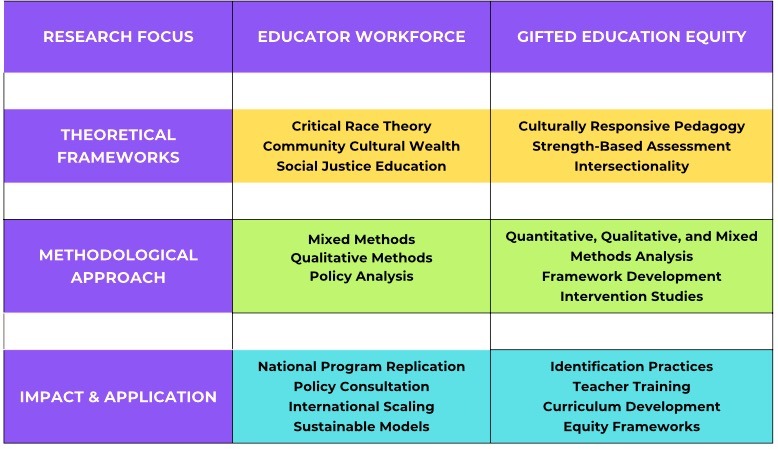

Research Dimensions Matrix
Inquiry Focus 1: Building a More Just and Representative Educator Workforce
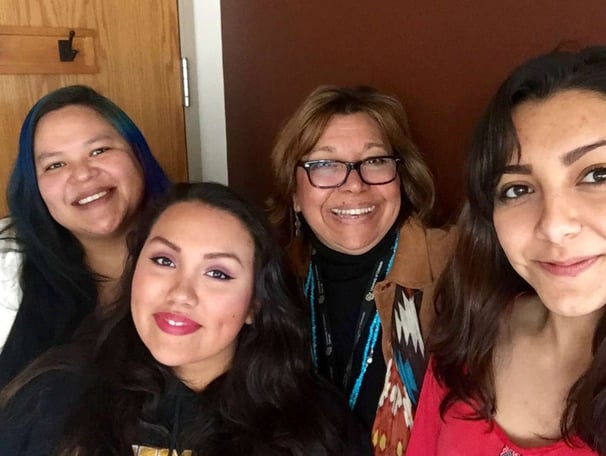

Educator Diversity
Traditional teacher preparation programs have largely failed to recruit, prepare, and support educators who reflect the demographics of the students and communities they serve (Goings & Bianco, 2016). Grow Your Own (GYO) programs offer a community-centered alternative that identifies and nurtures local talent, particularly individuals from historically marginalized communities who bring cultural knowledge, linguistic assets, and deep community connections (Gist, Bianco, & Lynn, 2018; Gist, Bristol, Bianco, Goings, 2021). My research in this area moves beyond simple demographic representation to investigate how GYO programs can develop a new generation of educators who are deeply committed to dismantling educational inequities and view teaching as a means of enacting justice in and for their communities (Martin & Bianco, 2024).
Inquiry Focus 2: Interrupting Exclusion: Advancing Equity in Gifted and Advanced Learning
The persistent underrepresentation of African American/Black, Latine, Indigenous students, multilingual learners, and students with disabilities in gifted and advanced learning programs is a direct consequence of systemic inequities, deficit-based ideologies, and exclusionary identification practices. Traditional approaches to the identification of gifted students often relies on narrow definitions of intelligence, biased referral processes, and static measures of
ability that ignore the cultural, linguistic, and neurodiverse strengths of historically marginalized populations (Bianco, 2005, Crepeau-Hobson, & Bianco, 2013). My scholarship in this area seeks to interrupt these patterns of exclusion by advancing culturally responsive, strength-based frameworks (Bianco, 2010, Bianco, M.,
Brandehoff, & Castillo-Tristani, 2024) that expand how giftedness is defined, recognized, and cultivated.
My foundational work provided early empirical evidence of bias in gifted identification, documenting how disability labels and gender influence teacher referrals (Bianco, 2005; Bianco, Harris, Garrison-Wade, & Leech, 2011; Bianco & Leech, 2010). Building from this foundation, my recent scholarship has focused on developing strength-based Response to Intervention (RTI) frameworks for multilingual learners and twice-exceptional students (Bianco & Harris, 2014; Crepeau-Hobson & Bianco, 2013), emphasizing what students can do rather than deficits.
My most recent work collaborates with scholars to develop a culturally grounded RTI model that centers ancestral knowledge, holistic development, and intersectional identities as foundational to supporting gifted students from underrepresented backgrounds (Bianco, Brandehoff, & Castillo-Tristani, 2024). This model disrupts traditional, Eurocentric conceptions of giftedness by integrating cultural ways of knowing and validating the lived experiences of students whose brilliance has long been overlooked by dominant systems.
Recognizing that teachers serve as critical gatekeepers in gifted identification processes, I have intentionally published across both research journals and practitioner-focused outlets including Gifted Child Today and TEACHING Exceptional Children (Bianco & Harris, 2014; Bianco, Brandehoff, & Castillo-Tristani, 2024). This strategic dissemination approach ensures my work reaches those who make daily decisions about student access to advanced learning opportunities, equipping classroom teachers with concrete, research-based strategies for recognizing and supporting diverse talents.
My scholarship in this area encompasses both programmatic innovation and empirical research examining the factors that influence students of color to consider and persist in teaching careers. Through Pathways2Teaching®, I have developed and studied a nationally recognized GYO model that positions high school students as future change agents (Bianco & Marin-Paris, 2019; Martin & Bianco, 2025; Russell, Viesca, & Bianco, 2016). My research has explored the unique motivations and experiences of diverse student populations, including African American male teens (Bianco, Leech, & Viesca-Mitchell, 2011; Goings & Bianco, 2018), Mexican heritage students (Bianco, 2025; Easley, Bianco, & Leech, 2012; ), and urban high school students of color more broadly (Leech, Haug, & Bianco, 2015). This work has documented both the barriers these students face—including experiences of racism in schools (Russell, Viesca, & Bianco, 2016)—and the protective factors that support their educational aspirations, such as authentic care and connection (Brandehoff, Bianco, Gallegos, Marin-Paris, & Garrison-Wade, 2024).
A critical sub-strand of my broader research focus on educator diversity, centers on the policy-level conditions necessary to achieve meaningful and sustained educator diversity through coordinated, equity-driven interventions across local, state, and national systems (Bianco et al., 2025). This line of inquiry investigates the systemic barriers that impede the recruitment, preparation, and retention of teachers of color and Indigenous educators, while offering policy recommendations to disrupt those barriers. I have collaborated on comprehensive policy analyses identifying strategies for recruiting and retaining teachers of color at scale (Carver-Thomas, Bianco, Goings, & Hyler, 2024), co-edited foundational research on recruitment strategies (Bianco & Goings, 2022), and contributed to collective efforts to position GYO as a critical race movement to transform education (Rogers-Ard, Knaus, Bianco, Brandehoff, & Gist, 2019). Through collaborative research, technical reports, and advocacy, I contribute to a growing policy discourse that resists surface-level solutions and instead pushes for comprehensive, structural change in how we grow and sustain an equitable educator workforce. This policy-focused work recognizes that individual programs, while important, cannot overcome structural barriers alone and seeks to create the conditions necessary for GYO approaches to flourish across diverse contexts and communities. While this narrative centers on the research dimension, it is deeply connected to my service commitments, including advising roles on several boards dedicated to advancing educator equity.
Mentoring 3 Indigenous / Native American students in preparation for our Pathways2Teaching presentation at the National Indigenous Education Research Conference. PhD student, Sena Harjo, Undergraduate student, Anastasia Lawrence, High School Student, Pearl Blueback. All students were involved with Pathways2Teaching and were education majors.
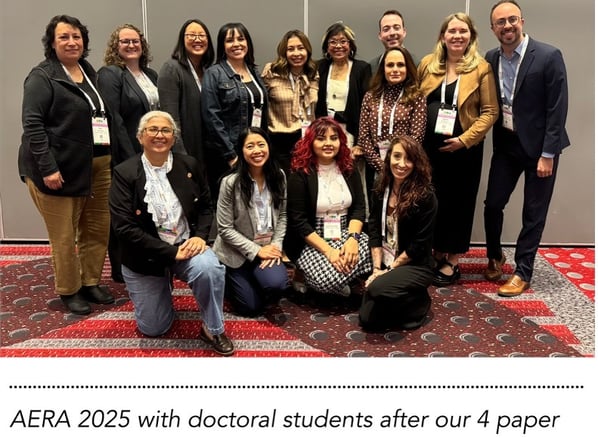

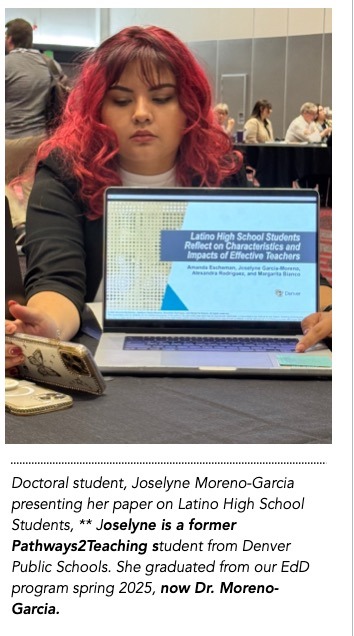

B. Future Plans for Research
Looking ahead, my research agenda is focused on several interconnected priorities that build on my past achievements and respond to urgent educational challenges. First, I will continue to establish and sustain research labs for doctoral students, providing structured mentorship and opportunities for professional growth. These labs will be designed to help students see themselves as emerging scholars, supporting them as they develop and present their research at national and international conferences and pursue high-quality publication, both individually and in collaboration with peers and faculty.
Moving forward, I am committed to expanding my research to advance GYO programs and educational policy through strategic international partnerships. Following my recent keynote presentation in Santiago, Chile, the country's Minister of Education expressed immediate interest policy changes to develop dual enrollmentcourses, a new concept for their educational system. I am committed to continuing this partnership with faculty at the University of Chile to adapt and implement culturally responsive GYO approaches while investigating global teacher shortages and innovative solutions through cross-cultural perspectives.
Additionally, I plan to deepen existing partnerships with communities and colleges in East Africa, examining the impact of joint initiatives and build new collaborations with universities in Puerto Rico to address the critical teacher shortage on the island, contributing to my ancestral homeland through research and program development.
According to a recent report by UNESCO there is an a global teacher shortage that demands immediate attention and stresses the urgency of this challenge. I am hoping to continue to build my partnerships in East Africa and South America to address this global need.
This expanded international trajectory will contribute to a growing body of research on how GYO principles can be adapted across diverse educational systems while ensuring that my scholarship advances both global knowledge and concrete systemic changes that promote educational equity worldwide
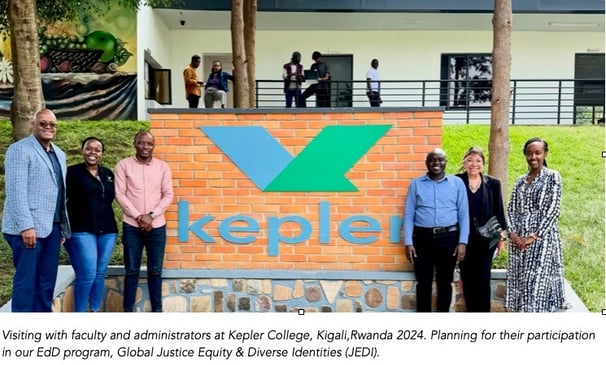

I will also will continue to advance my research on Pathways2Teaching, focusing on the development of critically conscious future educators. Drawing on 15 years of data, including student surveys, essays, and interviews, this work will examine how the program fosters diverse students in seeing themselves as capable educators, and addresses systemic barriers to teacher recruitment and retention. This rich dataset provides unique insights into the long-term impact of GYO programs on participants' educational trajectories, identity development, and career choices. By documenting the successes and challenges of Pathways2Teaching as it expands nationally, and leveraging this extensive longitudinal evidence, I aim to provide actionable insights for scaling similar programs and addressing the global teacher shortage crisis. I am currently working on a longitudinal impact study by trying to locate many of our graduates to determine the impact of the program on their educational and career trajectory.
Lastly, my two accepted book proposals will synthesize the key themes of my research into accessible publications that advance equity and justice in education. Pathways2Teaching®: A GYO Framework for Cultivating Critically Conscious, Equity-Driven Teachers: Preparing the Next Generation Through Love, Resistance, and Equity (Emerald Publishing, 2025) will provide a comprehensive framework for developing and implementing justice- GYO programs based on 15 years of program data and research. Finally, Designing Curriculum and Instruction That Is Multicultural and Rigorous for ALL Gifted and Talented Students (co-authored with Donna Y. Ford, National Association for Gifted Children, 2025) will bridge my work in gifted education equity with practical strategies for practitioners. Together, these publications will synthesize lessons learned from my research labs, policy development, global partnerships, and longitudinal program evaluation, providing essential resources for scholars, practitioners, and policymakers committed to transforming educational systems.